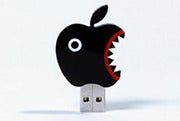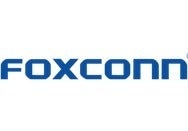Apple’s new iPad, already a hit with consumers with its high-resolution display, is nonetheless underwhelming some HTML 5 developers. The tablet’s iOS 5.1 operating system complicates HTML 5 data storage, offers no expanded HTML 5 support, and the tablet’s Web performance is at best only at par with iPad 2.
Sunday, 15 April 2012
Thursday, 12 April 2012
Security experts: 600,000-plus estimate of Mac botnet likely on target
Security experts today could not confirm claims by a little-known Russian antivirus company that more than 600,000 Macs have been infected with a zero-day-exploiting Trojan, but they said the number was within reason.
Wednesday, 11 April 2012
What you need to know about the Flashback trojan
 On April 4, Russian antivirus vendor Dr. Web published strong evidence that more than 500,000 Macs have been infected by the latest variant of the Flashback trojan. As Mikko Hypponen, Chief Researcher at F-Secure pointed out via Twitter, if there are roughly 45 million Macs out there, Flashback would now have infected more than 1 percent of them, making Flashback roughly as common for Mac as Conficker was for Windows. Flashback appears to be the most widespread Mac malware we’ve seen since the days when viruses were spread on infected floppy disks; it could be the single most significant malware infection to ever hit the Mac community.
On April 4, Russian antivirus vendor Dr. Web published strong evidence that more than 500,000 Macs have been infected by the latest variant of the Flashback trojan. As Mikko Hypponen, Chief Researcher at F-Secure pointed out via Twitter, if there are roughly 45 million Macs out there, Flashback would now have infected more than 1 percent of them, making Flashback roughly as common for Mac as Conficker was for Windows. Flashback appears to be the most widespread Mac malware we’ve seen since the days when viruses were spread on infected floppy disks; it could be the single most significant malware infection to ever hit the Mac community.Tuesday, 10 April 2012
Free Flashback Checker finds out if your Mac is infected
Still not sure whether you’re infected with that Flashback malware that’s been making headlines? A new free app from a Mac programmer can you help you verify whether your Mac’s caught the bug.
Analyst: 600,000 Macs infected with Trojan horse
 A Mac Trojan horse spotted by security analysts since last year has infected more than 600,000 Apple computers, says Dr. Web, a Russian antivirus vendor. Apple only patched the vulnerability this week, around a month after hackers began spreading the BackDoor.Flashback.39 Trojan horse, with most infected Macs located in the United States and Canada.
A Mac Trojan horse spotted by security analysts since last year has infected more than 600,000 Apple computers, says Dr. Web, a Russian antivirus vendor. Apple only patched the vulnerability this week, around a month after hackers began spreading the BackDoor.Flashback.39 Trojan horse, with most infected Macs located in the United States and Canada.More than 56 percent of the infected computers are in the U.S., almost 20 percent in Canada, and almost 13 percent in the U.K. Other European countries, as well as Japan and Australia, reportedly have infection rates of below 1 percent.
Yahoo laying off 2000 workers to save $375 million
After weeks of rumors of a pending reorganization, Yahoo announced this morning that the company is laying off about 2000 workers.
Sunday, 8 April 2012
Expert: Mac users more vulnerable than Windows users
 In the face of new threats aimed at OS X, a security expert said that Mac users may be even more vulnerable than Windows users who are more likely to be running up-to-date anti-virus programs. Graham Cluley of Sophos says that many Mac users are missing a “valuable safety net.”
In the face of new threats aimed at OS X, a security expert said that Mac users may be even more vulnerable than Windows users who are more likely to be running up-to-date anti-virus programs. Graham Cluley of Sophos says that many Mac users are missing a “valuable safety net.”Mac users should make sure that they have some form of protection, Cluley said. However, keeping your computer safe from cybercriminals isn’t just a case of having anti-virus programs installed. It’s about making sensible choices as well.
Thursday, 5 April 2012
Hitachi releases first enterprise-class 4TB hard drive
 Hitachi's former disk-drive division today announced what it said it the first enterprise-class 4TB hard disk drive. The drive has a greater areal density that offers 33 percent more capacity in the same 3.5-inch form factor at 24 percent lower watts-per-gigabyte than its predecessor.
Hitachi's former disk-drive division today announced what it said it the first enterprise-class 4TB hard disk drive. The drive has a greater areal density that offers 33 percent more capacity in the same 3.5-inch form factor at 24 percent lower watts-per-gigabyte than its predecessor.Hitachi Global Storage Technologies (HGST), now owned by Western Digital, introduced the new Ultrastar 7K4000 line, which uses the new 512e Advanced Format.
New Trojan variant can install without password
Originally, Flashback masqueraded as an installer for Adobe’s Flash Player—hence the name—but the malware has changed tacks at last once since then, instead pretending to be a Mac software update or a Java updater.
Monday, 2 April 2012
Foxconn's overtime reduction will not affect product prices, analysts say
 Low labor costs and a growing reliance on automation will ensure Apple supplier Foxconn’s newly announced efforts to reduce overtime for its employees and hire extra workers has no effect on product prices, according to analysts.
Low labor costs and a growing reliance on automation will ensure Apple supplier Foxconn’s newly announced efforts to reduce overtime for its employees and hire extra workers has no effect on product prices, according to analysts.By July 2013, Foxconn will restrict workers’ overtime to 36 hours a month, bringing it down from the allowed 80 hours per month, according to an audit released by the Fair Labor Association on Thursday. Foxconn, which manufactures Apple’s iPad and iPhone, made the changes following growing criticism of working conditions at the company’s factories in China.
Subscribe to:
Comments (Atom)


